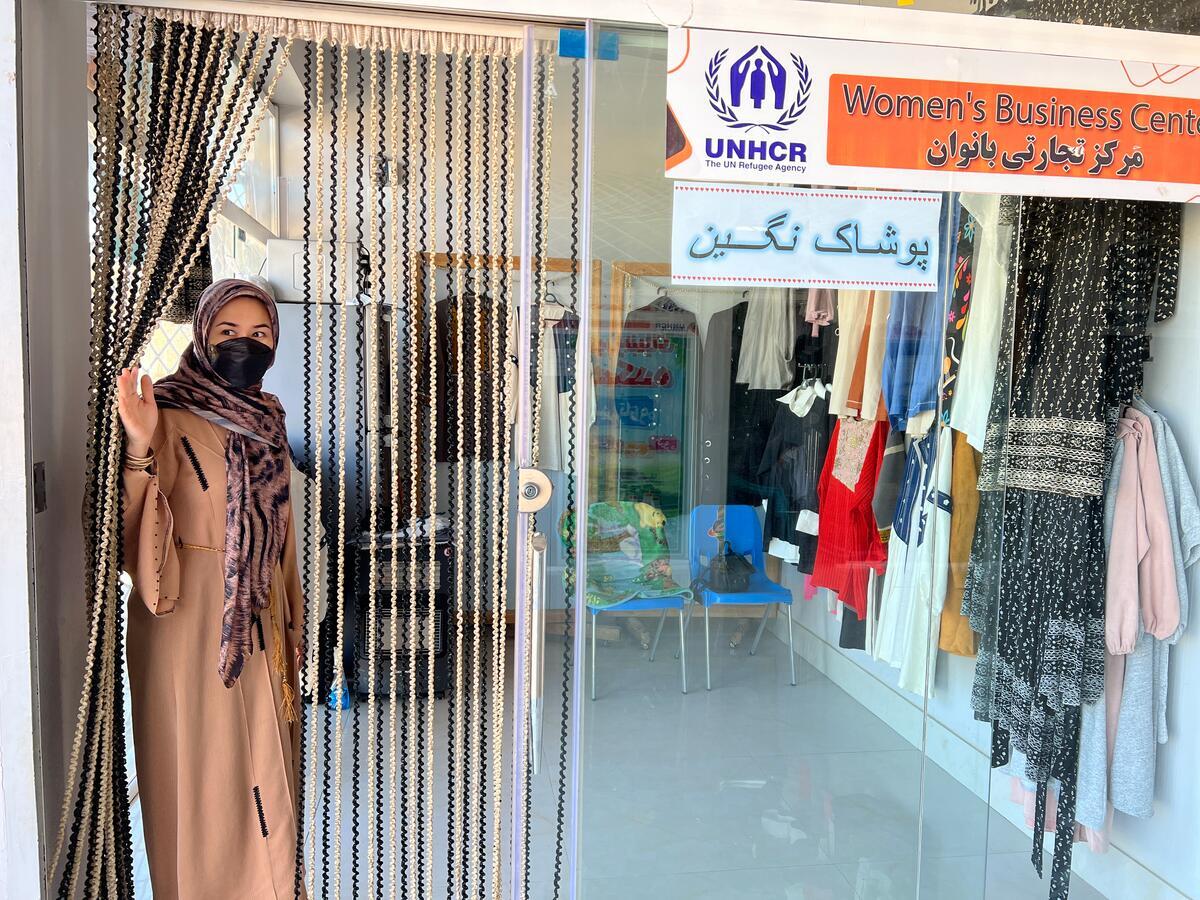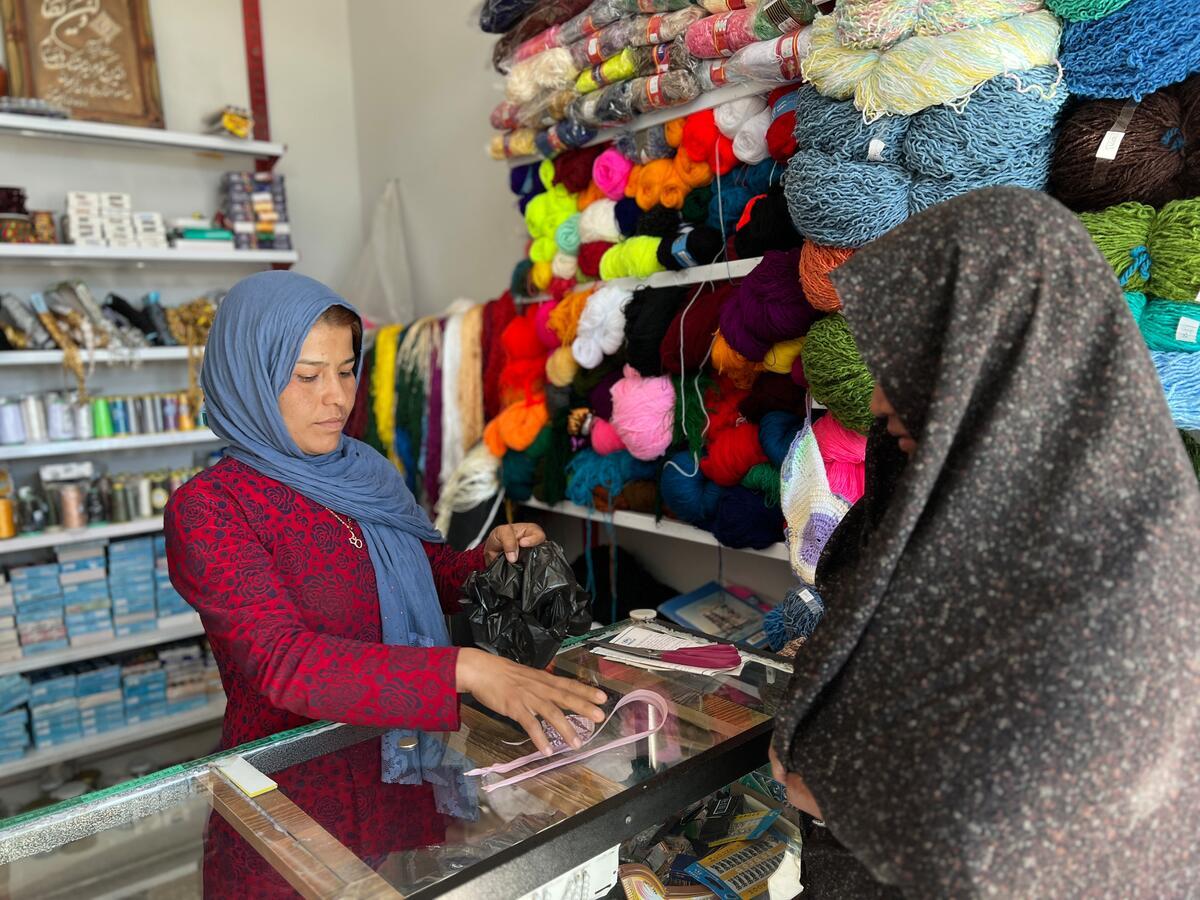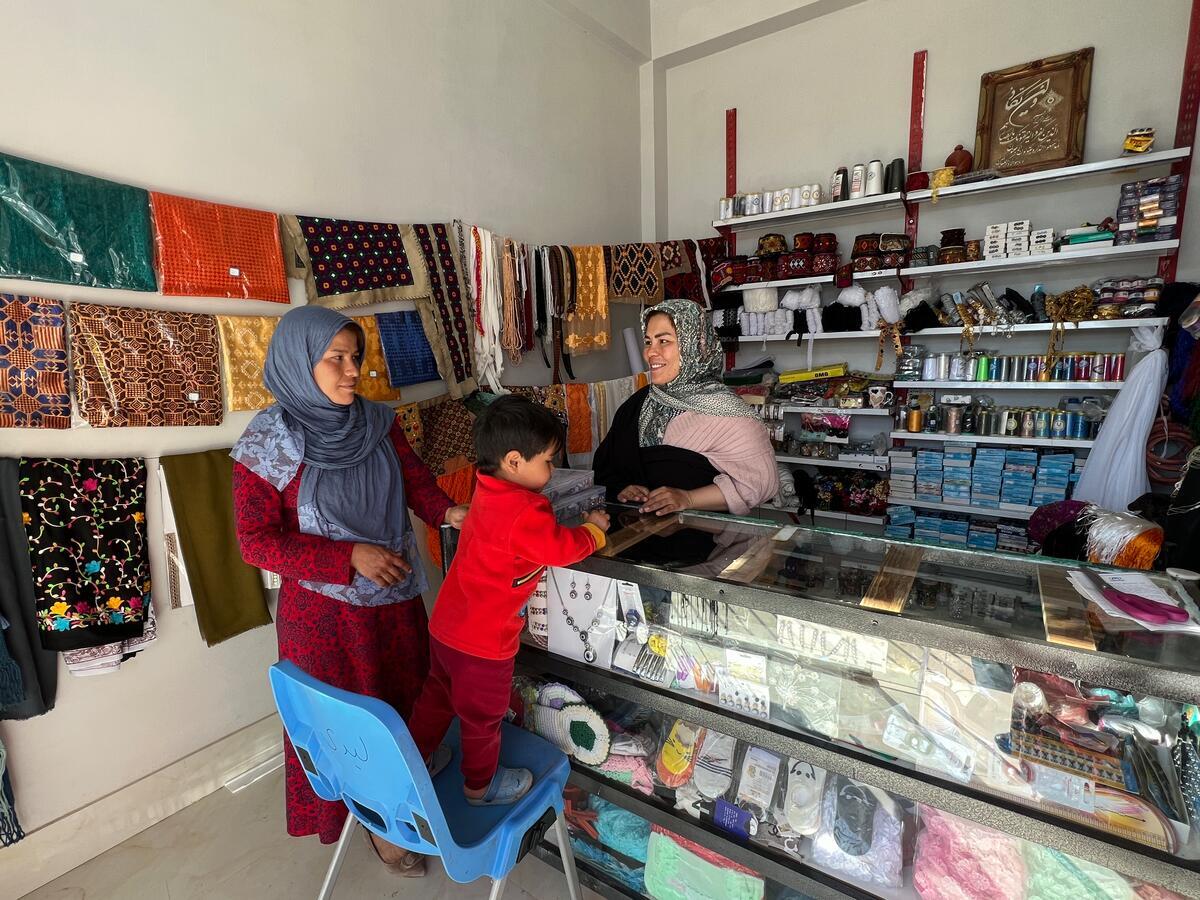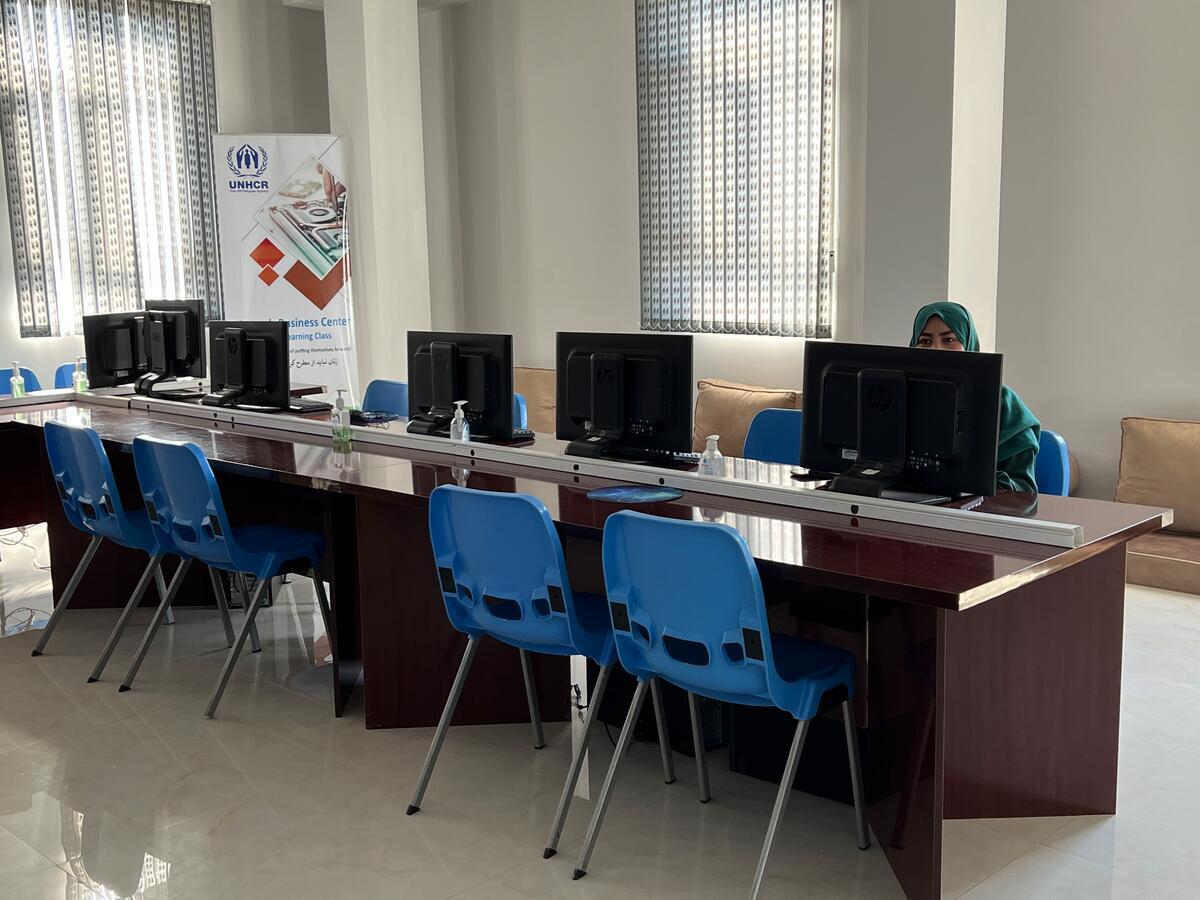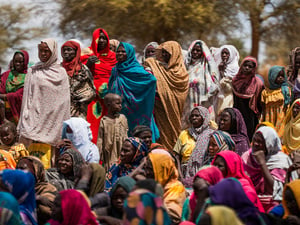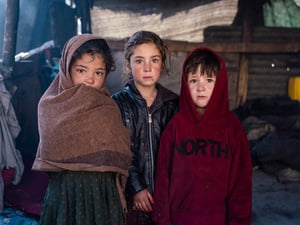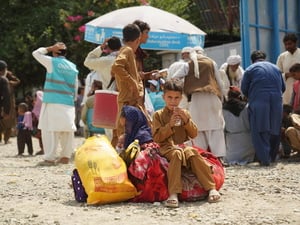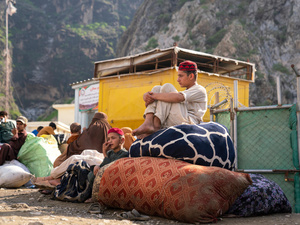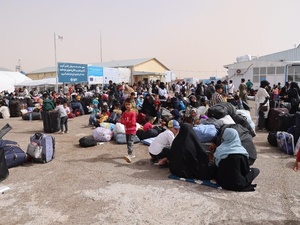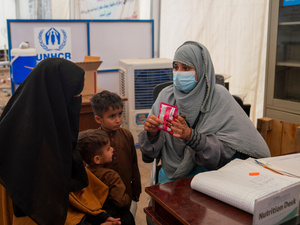Women-run businesses in Afghanistan dealt a blow by deepening restrictions
Women-run businesses in Afghanistan dealt a blow by deepening restrictions

Shahrbanoo and Motahera run a haberdashery shop at the Women's Business Centre. Their profits have gone down by 30 per cent since a ban on female NGO workers closed classes and activities at the centre.
Just a few months back, a gleaming new women’s business centre supporting female traders and providing English, computer and vocational training courses for women, was bustling with people. Today, the upper floors, where the courses took place, along with a creche, psycho-social counselling rooms, offices, and a permanent area for selling handicrafts, are silent.
“It used to be really, really busy here,” said Sahar*, a refugee returnee and mother of two, who runs a clothing store on the ground floor. It is one of 35 women-run businesses currently operating rent-free at the centre. “Since the ban on female staff working for non-governmental organizations, the second floor has been closed. We’ve lost so many customers.
“There were many students coming and going here, and they would come by the stores; they spread the word about the shops here and helped us to market the place. Now, my income has reduced a lot – I would say by about 50 per cent,” she said.
"We became businesswomen."
The centre opened in June 2022 as a pilot project requested by the community and supported by UNHCR, the UN Refugee Agency, with Afghan partner, Women Activities and Social Services Association (WASSA), to provide livelihood opportunities for women in western Afghanistan’s Guzara district, some 12 kilometres south of Herat city.
The area, adjacent to fields and mud-built houses, has high numbers of returnee refugees and displaced Afghans. It was designated as a so-called Priority Area for Return and Reintegration (PARR) by UNHCR, which supports initiatives to improve access to essential services and develop key infrastructure in such areas.
But, after the centre opened, the de facto authorities in Kabul gradually introduced more regulations targeting women and girls. In addition to barring them from secondary school and private classes, decrees were introduced stopping women from travelling long distances on public transport without a male relative or mahram (guardian) and banning them from parks and gyms. In late December, a new decree banned women from working for non-governmental organizations – forcing the closure of classes and activities at the centre, all of which were run by female NGO workers.
“Being able to run this shop was a golden chance for me,” said Motahera, a mother of two, who runs a haberdashery store at the Women’s Business Centre with her relative, Shahrbanoo. “I was so lucky to be able to work and have this support from UNHCR.
“Honestly, I can say it changed our personalities and restored our self-esteem. We were no longer just women staying at home, we became businesswomen.”
The women, both former refugees, invested all their profits back into the shop, buying new stock to keep customers satisfied. Motahera had dreamed of buying a house. “When the activities on the second floor stopped, we lost many customers. Our profits are down about 30 per cent. It was a real shock to us, and I cried a lot. I was worried that our businesses might also have to close.
“There are so many rumours. I feel anything is possible now; we just don’t know, and we can’t predict the future,” she said.
The traders here are not alone in feeling the economic impacts of restrictions on women. The International Labour Organisation (ILO) recently estimated that female employment in Afghanistan has fallen by a quarter since the de facto authorities took over in 2021, noting that home-based self-employment has become the main form of women’s participation in the labour market. The agency also estimated that Afghanistan’s GDP has contracted by 30 to 35 per cent over the past two years.
"Now the doors are closed to us."
A dozen former English language and computer students at the centre in Herat described feeling devastated when classes stopped overnight. “After the ban stopping girls studying past grade 6, this was the only place we could come and learn. We could also make new friends here and network. It was a really great place,” said 20-year-old Nargis.
“When it closed, we could only stay at home and were so depressed. I just stayed in my room and didn’t go out,” said another student, Raziea.
“The activities at the centre opened a new window for us,” said Latifa, 21. “It gave new hope to everybody. Now the doors are closed to us.”
UNHCR and partner WASSA are planning to distribute tablets to students and to conduct online teaching, although poor internet connectivity and costs may deter many.
UNHCR’s Senior Protection Assistant in Herat, Hayatullah Jawed, who has worked on the project, said the centre had a transformational impact. “It totally changed the views of the community; we got so much good feedback from people. It was a new chapter in their lives and provided new hope.
“Before, we heard that many were planning to leave and return to Iran, as they had no hope back here; but after the centre opened, they were confident and felt they could play a positive role in the development of their country,” he said.
The women are trying to remain hopeful, but some students said their families were considering leaving Afghanistan if things did not change soon. Nargis, who attended training on repairing mobile phones, said that she would not give up her determination to study again.
“Nobody can keep a moon behind the clouds,” she said. “It will reappear. What we are dealing with is temporary, not eternal. We must keep hope for the future and stay strong.”
*Not her real name

